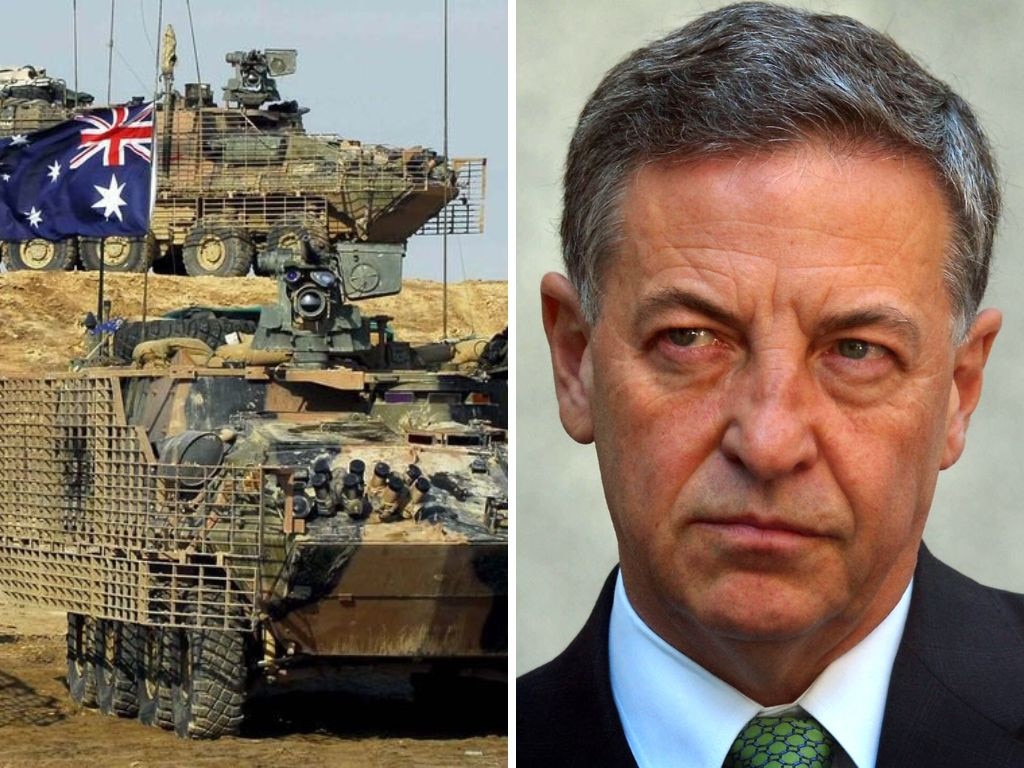It’s time to move on from Timor spy case. Espionage certainly has


However, due to national security exemptions, the latest release is predictably silent on one of the most infamous actions approved by the Howard government – the 2004 operation to deploy surveillance specialists of the Australian Secret Intelligence Service, disguised as aid workers, to install listening devices in the cabinet offices of the East Timorese government.
By eavesdropping on the Timorese government the covert operation was partly intended to strengthen Australia’s hand in negotiations over the Timor Sea Treaty, covering, among other things, ownership and access to the undeveloped Greater Sunrise oil and gas fields. What specific insights the operation yielded remains unknown, but certainly when the treaty was signed Australia had the greater say over how the Greater Sunrise fields would be developed.
Asked this week if he stood by the covert operation, Howard maintained it had been in the national interest. Critics of the operation have long characterised the spying as a form of “insider trading”, suggesting the government used the nation’s intelligence services to advance the commercial interests of Woodside. It’s been claimed by Australians and East Timorese that Howard’s government was effectively trying to steal the lion’s share of the Greater Sunrise fields for processing in Darwin, as opposed to allowing the Timorese to develop the fields and process the oil and gas on their shores. Under either scenario, each nation would still have received a portion of the profits.
Stripping the Timorese state of natural resources essential to its economic development and security was clearly not in the national interest of Australia in 2004, especially not after Australia had recently deployed thousands of ADF personnel under the INTERFET mission for the sole purpose of securing East Timor’s self-determination. So how can Howard still be so confident in 2025 that the ASIS operation “adhered to the national interest”?
The fact is that at no point between 2004 and now has it appeared commercially viable for East Timor to process and export oil and gas from their proposed location, Beaço, on the country’s southeast coast.
When Howard and foreign minister Alexander Downer authorised the operation, they likely believed they were diverting the Timorese away from a fantasy and towards the only realistic path that would allow both countries to access the $US50bn worth of oil and gas. That not a puff of gas or a drop of oil has yet been extracted from the Greater Sunrise fields appears to vindicate this assessment.
In light of the intense geopolitical volatility of the past two decades, there is something quaintly pious about the indignation the 2004 spying case still generates in some quarters of Australia. In an insecure world, where Australia’s power and influence is limited, secret statecraft adjacent to standard international relations is a regrettable necessity for nations, including democracies, to gain security and advantage.
While we will likely never know about them, it is safe to assume Australia has had to undertake numerous operations since 2004 where the stakes have been far greater and the methods more controversial than what occurred in East Timor. Considering current world affairs, it’s clear covert action and espionage aren’t going anywhere.

In the past year alone, we’ve seen numerous instances of such statecraft undertaken by countries, big and small, free and autocratic. In September, Israel’s Mossad performed the synchronised assassination of over 30 Hezbollah terrorists, in a strike since nicknamed Operation Grim Beeper, as it involved sabotaging with explosives the group’s pagers.
In December, the leader of Russia’s chemical and biological warfare operations was killed on the streets of Moscow by an exploding electric scooter placed outside his door by Ukrainian operatives. In October, it was reported that Chinese cyber spies accessed the communications of president-elect Donald Trump, his team and an unknown number of US intelligence sources by digitally infiltrating major US telcos.
Meanwhile, Russian operations in Europe ran rife, from attempts to disrupt the Paris Olympics, to infiltration of the European parliament, as well as multiple instances of sabotage against undersea cables.
These are just the publicly known instances of subversive statecraft that are, after all, meant to be secret. The critical point is covert action is everywhere and, since 2004, demand for Australia to undertake a wider range of higher-risk covert activities shows no sign of abating. We still need to counter Chinese espionage and foreign interference in Southeast Asia and the South Pacific, often by means of secret statecraft, where escalation can be better managed. Foreign wars and insurgencies, from the Middle East to Eastern Europe, will continue to take in Australians and touch Australian national interests.
Perhaps most decisive of all may be the expectations of Australia’s allies. Trump has long lambasted America’s NATO allies for relying too heavily on US lives and largesse for their protection. Australia should be on guard for similar scrutiny being applied to the Five Eyes intelligence partnership, where Australia’s intelligence agencies draw heavily from their US counterparts, including the spoils of American covert activities – from espionage to sabotage – which our leaders haven’t had the stomach for Australia to undertake directly.
William Stoltz is an expert associate at the ANU National Security College and a visiting fellow at the Robert Menzies Institute.






Each January brings the annual declassification of Australia’s cabinet papers under the 20-year rule, prompting former prime minister John Howard to be quizzed this week on the decisions that occupied the cabinet in 2004.